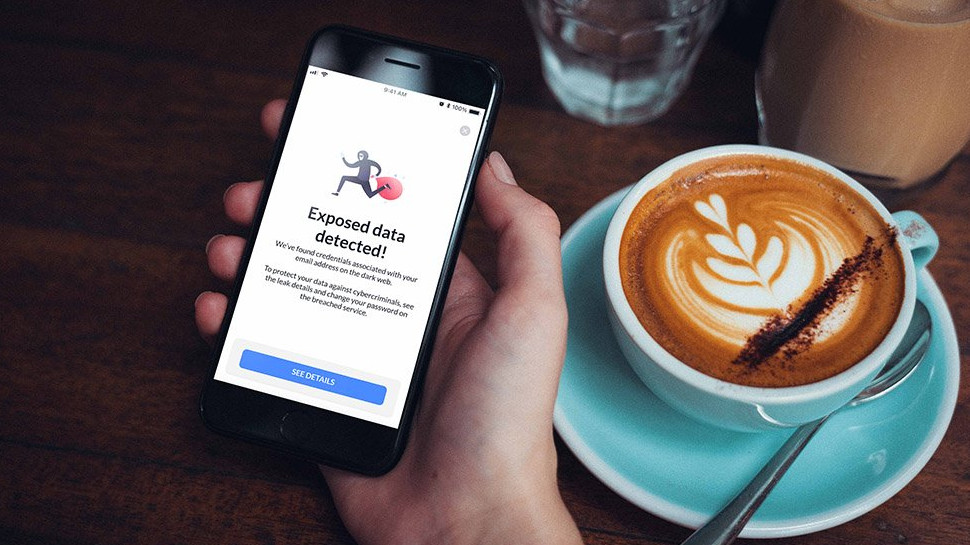
Sign up for breaking news, reviews, opinion, top tech deals, and more.
You are now subscribed
Your newsletter sign-up was successful
Realising that you’ve been a victim of identity theft can be depressing, but it’s also the point where you’ve got to take steps immediately. In order to stop the situation getting worse you’ll want to evaluate exactly what’s been happening and decide on a route forwards in order to prevent anything else happening to your ID.
Once they’ve got your personal information criminals can often work quickly in order to carry out crimes. Often this goes unnoticed initially, which allows the fraudsters to do even more damage to your personal identity information. On top of that, criminals can often use specific personal information, such as your Social Security number, so stake a claim for your tax refund.
Hopefully the IRS will be able to alert you to this, although it's often possible to spot an occurrence of tax-related ID theft when you try and submit your tax return. If it gets rejected, this may be a key identifier that criminals have got hold of your Social Security number, along with other personal details, and used them to claim your annual tax refund.
- Check out the best identity theft protection
- The best tax software around today
- Take a look at the best accounting software
Taking action
Spotting that you’ve been a victim of identity theft is really just the beginning of the process and you’ll need to take several steps in order to try and minimise the damage it can do. Identity theft can have seriously detrimental knock-on effects as it can make a mess of your personal records and harm your profile in relation to the likes of employment, health and credit history too.
One of the first things to try and establish is what kind of identity theft has occurred as criminals can target many different aspects of your day-to-day life. Fraud covers a wide spectrum of things that directly impact your activities, including taxation, banking and credit along with employment and benefits. ID theft can even cause complications with things like your medical and criminal records.

Fraud alerts
If you’ve managed to get an overview of what has been happening the next step is one that’s well worth considering. Many people who’ve become victims of identity theft subsequently place a fraud alert with one of the three national credit reporting agencies. All you need to do is contact one of the big three bureaus, which includes Equifax, Experian and TransUnion.
The bonus about doing this is that you actually only need to contact one of these agencies and they are then duty bound to inform the others. Another added benefit of going down the route of a fraud alert is that it lets you obtain a free credit report, and this can be done for each one, so that you can get a bang up to date overview of your credit situation.
Sign up to the TechRadar Pro newsletter to get all the top news, opinion, features and guidance your business needs to succeed!
Financial accounts
You’ll also want to pick through your financial accounts in order to try and spot any potentially fraudulent activity. You might be using accounting software, which is often the quickest way to highlight any anomalies. However, if you’re the type of person who prefers to have everything on paper in front of you then it’s a good time to pick through it all and track down anything untoward.
If you discover that any accounts have been opened without your permission then you’ll obviously want to contact the financial institution involved in order to explain the situation. You might want to do the same for any of your genuine accounts which could have been used for fraudulent reasons following criminals getting hold of your personal details.

Computer check
Now that so much of our lives is online it's a good idea to take stock of your computing and cell phone habits too. Many identity theft breaches occur when people give away their details online, often by mistake when replying to things like phishing emails. Many online scams can be very convincing, and this is still a common way of being duped by criminals.
Remember that large organisations like the IRS will not send you emails or make unsolicited calls asking for personal details, including your Social Security number. If you get contacted like this then disregard it. At the same time it might be a good idea to invest in one of the best internet security suites, or at least get your equipment given the once over with an anti-virus scan to filter out any potential threats from cybercriminals.
Secure identity
If identity theft has occurred you will most likely be required to complete and submit the Federal Trade Commission’s ID Theft Affidavit. The government offers good advice in this area via its specialist website and this is a good point of call in order to explore your next steps in the wake of ID theft. You’ll also want to file a complaint with the Federal Trade Commission or FTC, which has the forms you need plus helpful information on how to move things forward.
Other steps to consider when it comes to taking action if you’re a victim of ID theft is to file a police report, which does at least show you have placed the event on record. On top of that, keep close tabs of anything that you do in relation to the identity theft. This should be in the form of a log that catalogs everyone you’ve spoken to along with dates, times, any postal correspondence sent or received and so on.
Ultimately, it’s a headache to sort out identity theft and there are several hurdles to get over before you can set the record straight. However, it's vital that you take steps immediately, and don't make a point of ignoring any alarm bells you might spot along the way. The longer you leave reporting the matter the more damage criminals can do, not only to your credit report, tax and other financial matters but it can also be hugely detrimental to your personal reputation.
- Check out our roundup of the best identity theft protection
Rob Clymo has been a tech journalist for more years than he can actually remember, having started out in the wacky world of print magazines before discovering the power of the internet. Since he's been all-digital he has run the Innovation channel during a few years at Microsoft as well as turning out regular news, reviews, features and other content for the likes of TechRadar, TechRadar Pro, Tom's Guide, Fit&Well, Gizmodo, Shortlist, Automotive Interiors World, Automotive Testing Technology International, Future of Transportation and Electric & Hybrid Vehicle Technology International. In the rare moments he's not working he's usually out and about on one of numerous e-bikes in his collection.
